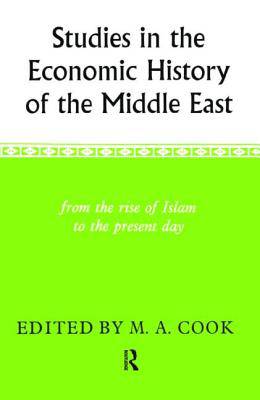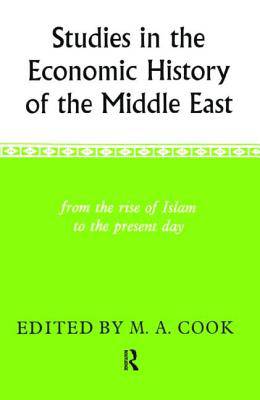
- Afhalen na 1 uur in een winkel met voorraad
- Gratis thuislevering in België vanaf € 30
- Ruim aanbod met 7 miljoen producten
- Afhalen na 1 uur in een winkel met voorraad
- Gratis thuislevering in België vanaf € 30
- Ruim aanbod met 7 miljoen producten
Zoeken
Studies in the Economic History of the Middle East
From the Rise of Islam to the Present Day
M A Cook
Hardcover | Engels
€ 274,95
+ 549 punten
Omschrijving
First Published in 2004. Did medieval Muslims have the concept of a 'social class'? If not, can we usefully employ the term in analysing their society? Were there such things as guilds in the medieval Middle East? Would we understand the economic de- cline of Mamluk Egypt better if we used paradigms derived from the study of the economic history of England and Italy in the fourteenth and fifteenth centuries? How much can the enormous fiscal archive of the Ottoman Empire tell us about population history? Why was the Middle East so backward, if indeed it was, compared with the rest of the Afro-Asian world in the nineteenth century? Have Iran and Iraq better prospects for economic growth than otherwise comparable countries thanks to their oil royalties? Or are these paradoxically a hindrance rather than a help? The study of the economic history of the Middle East in Islamic times is notoriously underdeveloped. This volume contains papers discussed at an international conference held at the School of Oriental and African Studies in 1967, together with three short critical essays which attempt to tie them together. Some papers are specific contributions to research, others survey wider areas. The volume is not a comprehensive history or a systematic inventory, but it is hoped that, in addition to presenting a set of papers which are interesting in themselves, it will give the reader a tolerable idea of the state of studies in the field.
Alleen bij Standaard Boekhandel
+ 549 punten op je klantenkaart van Standaard Boekhandel
Beoordelingen
We publiceren alleen reviews die voldoen aan de voorwaarden voor reviews. Bekijk onze voorwaarden voor reviews.












